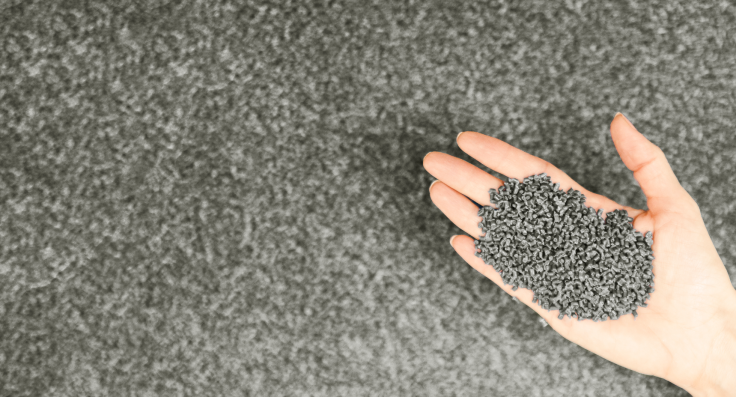Carbon Neutrality Vision on the Rise
Carbon neutrality must be a shared vision by all players in the ecosystem if we are to achieve it by 2050. In manufacturing applications, we are beginning to see a shift – specifically in raw materials used in manufacturing. With bio-based composite materials, most industries have found a solution that meets new consumer demands for sustainability, while meeting the financial requirements of running a successful business.
What is Driving this Shift?
Part of the driving force for more sustainable materials is consumer demand. Simply put, consumers
are demanding more from manufacturers who make our everyday products. According to The Global Sustainability Study 2021, based on a survey conducted in July 2021 by Simon-Kucher & Partners, “sustainability is becoming increasingly important in consumers’ purchasing decisions, especially as consumers see themselves, along with for-profit companies, as the primary catalysts for change.” The sustainability of materials and products is carrying increasing weight in purchasing decisions by consumers, pushing brands to make sustainability one of their top value propositions.
Moreover, according to a recent ING research study, consumers are starting to avoid brands that don’t prioritize sustainability and environmental issues. Beyond consumers, investors and governments are also pushing the green agenda, and leading manufacturers are following suit.
Bio-Based Thermoplastics
In the search to lower their carbon footprint, manufacturers are shifting towards sustainable raw materials to help the company meet their sustainability goals. This is where bio-based thermoplastics come in as a sustainable alternative for product development. From the largest items, such as pipes in construction and car parts in the automotive industry, to the smallest such as broom handles or planters, these are all made with oil-based resins that can be replaced with a bio-based alternative.
The potential to replace oil-based plastics with a more sustainable raw material is greater than what meets the eye. Computers, food trays, shipping crates, POS displays, pallets are just a few examples of “invisible plastics.” These invisible plastics play a crucial role when it comes to reducing the carbon footprint across industries and supply chains. It’s an easy shift that successful businesses are already implementing without the need to change anything in their current manufacturing process.
Cost is Still a Decisive Factor
What many might not say is that cost is still a decisive factor. Although consumers want environmentally friendly plastics and materials in their products, they are not always willing to pay if it’s more expensive. Price will outweigh principle if the cost difference between sustainable products and traditionally produced products is too far off.
That’s why bio-based materials must fulfill both the ideological demands of consumers, new legislations and at the same time, meet the need for cost parity.
What’s the Solution?
Advancements in material science has enabled a new type of bio-based composite that meets these demands. Rather than creating bio-based composite materials from plant-based sources including corn, sugar, and wheat, which require significant resources to grow in the first place, new breakthroughs enabled the creation of a bio-based material made 100% from unsorted household waste. The advanced materials company, UBQ Materials, takes unsorted household waste and converts it into a new sustainable raw material: the UBQ™ material.
Yes, you read right: your ordinary garbage can be used to replace oil-based resins.
Amazingly, our household waste – including food scraps, wet cardboard, diapers, and plastic waste – can form the basis of the matrix for a strong, versatile bio-based composite material. This surprising bio-based composites is a cost-effective sustainable alternative to oil-based resins, and manufacturers are already using it.
Why is it so cost-effective?
Well, sadly, trash is everywhere – a virtually unlimited resource, unlike oil. However, this offers a stable source of feedstock to create bio-based thermoplastic raw material versus traditional resins based on fluctuating oil markets.
Leading Companies are Already Using UBQ™ to Meet SDGs and Consumer Demand
Leading manufacturers have taken note of this new differentiator that can meet growing consumer demand for more sustainable products. Polyram Group, Mercedes-Benz, PepsiCo, ABinBev, McDonald’s, Crescent, within others, are already implementing UBQ™ across their supply chain. Clients that are looking for circular solutions and carbon-reduced products are making smarter purchasing decisions. The products that are made with UBQ™ divert waste, reduce emissions, and support a net-zero future.
As time goes on, sustainability additives will become the “salt and pepper” of raw materials manufacturing. That is, like salt and pepper, they will be used in every dish being prepared or every product being manufactured. Driven by both policy and consumer demand, sustainable bio-based composite materials like UBQ™ will truly become as ubiquitous as the trash they are made from.
With manufacturers being the third-largest contributors to carbon emissions, it’s no secret that this wide sector of industry has an important role to play in the fight against climate change. It’s safe to say that bio-based polymers are a cost competitive option for manufacturing existing products in a more sustainable way.


